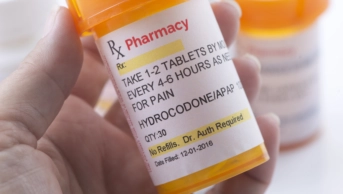
Shutterstock.com
Children who are prenatally exposed to paracetamol are more likely to develop symptoms of autism spectrum conditions (ASC) and attention deficit hyperactivity disorder (ADHD), results published in the European Journal of Epidemiology (28 May 2021) have suggested[1].
In a collaborative study of six European population-based birth/child cohorts, including a UK cohort, comprising 73,881 mother–child pairs, pre- and postnatal paracetamol exposure was assessed through maternal questionnaires or interviews.
The researchers found that children who were prenatally exposed to paracetamol were 19% and 21% more likely to subsequently have borderline or clinical ASC (odds ratio [OR] = 1.19, 95% confidence interval [CI] 1.07–1.33), and ADHD symptoms (OR 1.21, 95% CI 1.07–1.36), respectively, compared with non-exposed children. The odds were similar for boys and girls, although the associations were found to be slightly stronger among boys.
In contrast, postnatal exposure to paracetamol was not associated with ASC or ADHD symptoms.
According to the study, paracetamol is used by 46–56% of pregnant women in developed countries. While it is considered the safest analgesic for pregnant women and children, there has been “mounting evidence” linking prenatal exposure to worse cognitive performance, behavioural problems, ASC and ADHD.
“Our results support previous findings and address part of the weaknesses of previous meta-analyses,” the authors concluded.
“Considering all evidences on [paracetamol] use and neurodevelopment, we agree with previous recommendations indicating that while [paracetamol] should not be suppressed in pregnant women or children, it should be used only when necessary.”
- 1Alemany S, Avella-García C, Liew Z, et al. Prenatal and postnatal exposure to acetaminophen in relation to autism spectrum and attention-deficit and hyperactivity symptoms in childhood: Meta-analysis in six European population-based cohorts. Eur J Epidemiol Published Online First: 28 May 2021. doi:10.1007/s10654-021-00754-4


